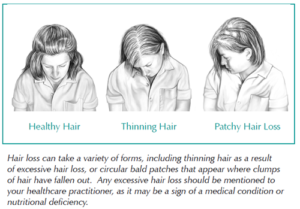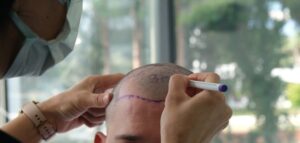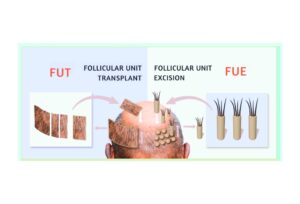Genetics plays a large role in your chances for hair loss.
A Millennials Hair Loss Story
 When Diana Damian was 32 years young, she began experiencing hair loss.
When Diana Damian was 32 years young, she began experiencing hair loss.
Initially, she assumed it was due to giving birth, but when the problem didn’t stop and got worse, she began to think it was something more.
“Every time my hair would fall out, every time I’d look in the mirror, every time I’d brush my hair, especially in the shower, globs of hair would just fall down,” Damian told ABC News.
She looked up do-it-yourself videos on YouTube and tried several over the counter products. When nothing seemed to work she turned to dermatologist Candace Thornton-Spann.
“Millennial hair loss is something that I’m seeing quite a bit of in my practice,” she said.
“There is no evidence hair loss happens more to millennials than to earlier generations, but previous generations hid under wigs or just didn’t question it. In this generation, there is no taboo, there is only the drive to seek answers and I think that’s probably what’s driving the increase in numbers that we’re seeing,” said Thornton-Spann.
There are many variables as to what can cause hair loss in young women, including hormonal changes, autoimmune diseases, medications, and stress.
Diana said that she also suffers from anxiety and depression and the stress created from losing her hair only made the condition worse.
Likewise, your diet can okay a large role in the health of your hair and scalp.
“The trend these days is to exclude large parts of the diet. So, I see young women who may have completely stopped eating meat. Hair is made of protein, so it makes sense that if you are not getting adequate protein, you cannot grow adequate hair.”
 Hair loss is common in women who choose a vegan diet but don’t manage it properly. It’s very important to ensure that you are receiving all the vitamins and minerals you require in a day, especially when you are on a new diet.
Hair loss is common in women who choose a vegan diet but don’t manage it properly. It’s very important to ensure that you are receiving all the vitamins and minerals you require in a day, especially when you are on a new diet.
“It’s easy to take a healthy lifestyle for granted. We hear so many good stories about a plant-based diet these days: That it prevents diseases, cures what ails you, and can help you achieve your fitness goals. With such an abundance of good news, we sometimes forget that it’s not a silver bullet,” wrote Susan Lacke, a No Meat Athlete contributor.
“We can’t run on autopilot and assume that we’ll be just fine. Just like an airplane can’t land without a pilot in the cockpit, we have to take control of what we put into our bodies. It’s not impossible to get enough protein on a plant-based diet, you just have to make an effort.”

















